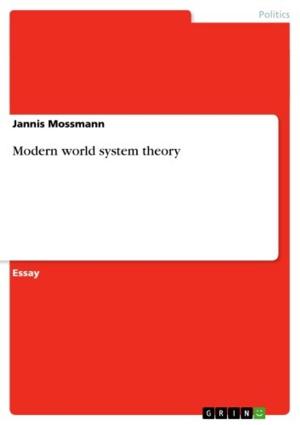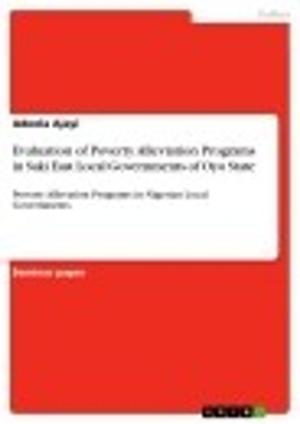The Role of Education In Fighting Inequality
Nonfiction, Social & Cultural Studies, Social Science, Anthropology| Author: | Counsel Mayabi | ISBN: | 9783656898641 |
| Publisher: | GRIN Publishing | Publication: | February 17, 2015 |
| Imprint: | GRIN Publishing | Language: | English |
| Author: | Counsel Mayabi |
| ISBN: | 9783656898641 |
| Publisher: | GRIN Publishing |
| Publication: | February 17, 2015 |
| Imprint: | GRIN Publishing |
| Language: | English |
Seminar paper from the year 2014 in the subject Sociology - Knowledge and Information, University of Nairobi (Law), course: Social Foundations of Law, language: English, abstract: The presence of unequal opportunities and incentives for varied social statuses in a community or a state sums up my definition, which is open to debate, of inequality. These include the unequal distribution of resources and the distribution that is based on already established patterns that have been socially defined. In this context, there are categories of people in a given society and resources are distributed based on the category into which the people fall. Because of the inequalities in the society, the people at the upper classes would be always ahead of those in the lower-class. Those at the lower-class will therefore find it hard to abridge the wide gap between the classes. Some have said that education is the only way up the social ladder. A few however, refute the claim that no one needs to be educated to avoid poverty. That is education is no guaranteed solution for the inequalities They say, we cannot run to education as the only solution to poverty. Going to institutions of higher learning to find a way out of poverty or social problems should be out of anyone's mind (Marsh, p12). However, such mentality is not in its entirety justifiable as the power of education cannot be underestimated. Education may not be the only way out, but at least it has a bearing on the overall call for equality. Having said this, my paper finds out and its main purpose is to provide a justification that education may be in one way or another, a way out of inequality and poverty as would be argued in the rest part of this paper.
Seminar paper from the year 2014 in the subject Sociology - Knowledge and Information, University of Nairobi (Law), course: Social Foundations of Law, language: English, abstract: The presence of unequal opportunities and incentives for varied social statuses in a community or a state sums up my definition, which is open to debate, of inequality. These include the unequal distribution of resources and the distribution that is based on already established patterns that have been socially defined. In this context, there are categories of people in a given society and resources are distributed based on the category into which the people fall. Because of the inequalities in the society, the people at the upper classes would be always ahead of those in the lower-class. Those at the lower-class will therefore find it hard to abridge the wide gap between the classes. Some have said that education is the only way up the social ladder. A few however, refute the claim that no one needs to be educated to avoid poverty. That is education is no guaranteed solution for the inequalities They say, we cannot run to education as the only solution to poverty. Going to institutions of higher learning to find a way out of poverty or social problems should be out of anyone's mind (Marsh, p12). However, such mentality is not in its entirety justifiable as the power of education cannot be underestimated. Education may not be the only way out, but at least it has a bearing on the overall call for equality. Having said this, my paper finds out and its main purpose is to provide a justification that education may be in one way or another, a way out of inequality and poverty as would be argued in the rest part of this paper.















